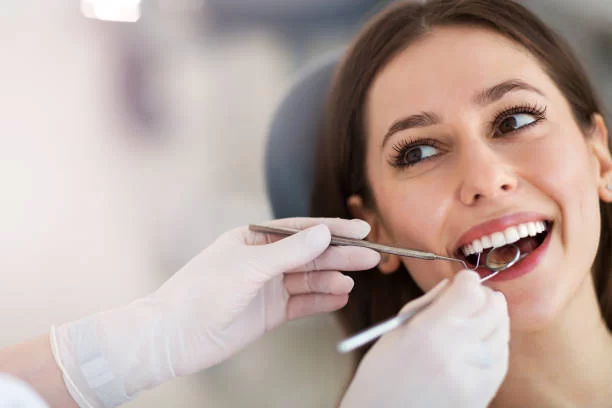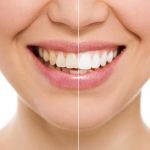
How Dental Health Impacts Overall Health in Seniors
As I reflect on the aging process, it becomes increasingly clear that our dental health plays a vital role in overall well-being, particularly as we grow older. Many people tend to overlook the importance of maintaining healthy teeth and gums as they age, but what many fail to realize is that the state of your mouth can significantly impact your overall health. In this article, I'll share insights into how dental health affects seniors' health and why maintaining good oral hygiene should be a top priority as we age.
The Link Between Oral Health and Overall Health
When I think about the link between oral health and overall health, it’s not just about avoiding bad breath or toothaches. Research has shown that poor oral hygiene can contribute to a variety of health problems. For seniors, the connection between oral health and systemic health issues like heart disease, diabetes, and respiratory infections is particularly important. The mouth is a gateway to the body, and bacteria that accumulate in the mouth due to poor oral hygiene can travel into the bloodstream and lead to infections and inflammation throughout the body.
In fact, conditions like periodontal (gum) disease have been linked to an increased risk of cardiovascular disease. The inflammation from gum disease can increase the levels of certain proteins that cause inflammation in the arteries, leading to heart disease. As a senior, managing dental health can reduce these risks and promote a longer, healthier life.
The Impact of Dental Health on Chronic Conditions in Seniors
When I look around at older adults, many suffer from chronic conditions such as diabetes, heart disease, and even stroke. What’s surprising is that maintaining good oral health can help control some of these chronic conditions. Let’s take diabetes as an example. Studies have shown that people with diabetes are more likely to develop gum disease, and the presence of gum disease can make it harder to control blood sugar levels. By keeping your teeth and gums healthy, you’re not just avoiding tooth loss, but you’re also helping to control blood sugar levels, which is crucial for anyone managing diabetes.
Additionally, seniors who suffer from respiratory infections may not realize that poor oral hygiene can contribute to lung problems. Bacteria from the mouth can be aspirated into the lungs, leading to pneumonia or other serious respiratory infections. This connection is especially concerning for seniors with compromised immune systems or those who are living with chronic respiratory issues. Good oral hygiene helps prevent these bacteria from entering the respiratory system, reducing the risk of infections and hospital visits.
Dental Care Challenges for Seniors
As we age, dental health becomes more challenging. Many seniors experience dry mouth due to medications or medical conditions, which can make it harder to maintain good oral hygiene. Dry mouth increases the likelihood of tooth decay and gum disease because saliva helps wash away food particles and neutralize harmful acids. Additionally, physical limitations, such as arthritis, can make it difficult to properly brush and floss teeth. This is where regular dental checkups and professional cleaning can be a game-changer.
In some cases, seniors may also experience tooth loss due to neglecting dental care in their younger years. It’s not uncommon for older adults to feel embarrassed about their smile, especially if they’ve lost teeth or have noticeable dental issues. But it’s never too late to seek help from a dentist. With modern dental procedures such as implants and dentures, it’s possible to restore function and confidence in one’s smile, improving overall quality of life.
Prevention is Key: Tips for Maintaining Dental Health in Seniors
Preventing dental issues is much easier than treating them, and it all starts with a daily routine. Let me share some tips that can help seniors maintain good dental health:
- Brush twice a day: Using fluoride toothpaste, gently brush your teeth at least twice a day to remove plaque and prevent tooth decay. Be sure to brush your tongue and the roof of your mouth as well to reduce bacteria in the mouth.
- Floss daily: Flossing removes food particles and plaque between the teeth and along the gum line, where toothbrushes can't reach. It’s a vital step in preventing gum disease.
- Regular dental visits: Even if you don’t have any apparent issues with your teeth, regular dental checkups are essential. A dentist can spot early signs of gum disease, cavities, and other oral health problems.
- Stay hydrated: Drinking water throughout the day can help alleviate dry mouth, which is common in seniors. Chewing sugar-free gum can also stimulate saliva production.
- Limit sugary foods and drinks: High sugar intake can lead to tooth decay. Try to limit sugary snacks, and opt for healthier alternatives like vegetables, fruits, and nuts.
- Quit smoking: Smoking can contribute to gum disease, tooth loss, and oral cancer. If you’re a smoker, quitting can significantly improve your dental health and overall well-being.
Real-Life Example: A Story of Recovery Through Dental Care
I’d like to share a story of a senior friend of mine, Clara, who discovered the importance of dental health in her 70s. Clara had always neglected her oral health, brushing only occasionally and rarely visiting the dentist. By the time she reached her 70s, she was dealing with severe gum disease, and her teeth were beginning to loosen. Clara didn’t realize how much her dental health was affecting her overall health until she started feeling fatigued all the time and was diagnosed with high blood pressure.
After a visit to a new dentist, Clara was shocked to learn that the bacteria from her gum disease was likely contributing to her high blood pressure. The dentist recommended a series of treatments, including deep cleanings and gum therapy. Within months of improving her oral health, Clara noticed not only improvements in her dental health but also a significant boost in her energy levels and overall well-being. It was a real eye-opener for her about the deep connection between dental care and overall health, and she became a passionate advocate for senior dental health.
Clara’s story is a reminder that no matter your age, it’s never too late to improve your oral health and prevent future complications. By staying on top of dental care, you can ensure a healthier life for years to come.







 Open Door Family Medical Center- Sleepy Hollow4.0 (215 review)
Open Door Family Medical Center- Sleepy Hollow4.0 (215 review) Hanson Place Dental1.0 (441 review)
Hanson Place Dental1.0 (441 review) Nak4 Orthodontics Arlington Heights4.0 (253 review)
Nak4 Orthodontics Arlington Heights4.0 (253 review) Red Oak Dentistry: Dr. Michael King4.0 (74 review)
Red Oak Dentistry: Dr. Michael King4.0 (74 review) Blissful Dental4.0 (440 review)
Blissful Dental4.0 (440 review) ADVANCED SMILES PC4.0 (205 review)
ADVANCED SMILES PC4.0 (205 review) The Importance of Oral Health Education During Pregnancy for a Healthy Pregnancy
The Importance of Oral Health Education During Pregnancy for a Healthy Pregnancy Best Tips for Brushing Your Teeth Properly for Healthy Gums: Essential Techniques for Oral Health
Best Tips for Brushing Your Teeth Properly for Healthy Gums: Essential Techniques for Oral Health Why Skipping Dental Checkups Can Lead to Bigger Oral Health Problems
Why Skipping Dental Checkups Can Lead to Bigger Oral Health Problems Advantages of Porcelain Dental Restorations
Advantages of Porcelain Dental Restorations How Can Diabetes Cause Tooth and Gum Problems? Preventing and Managing Oral Health Issues
How Can Diabetes Cause Tooth and Gum Problems? Preventing and Managing Oral Health Issues Healthy Habits for Promoting Good Oral Health and Hygiene: Tips for a Healthy Smile
Healthy Habits for Promoting Good Oral Health and Hygiene: Tips for a Healthy Smile